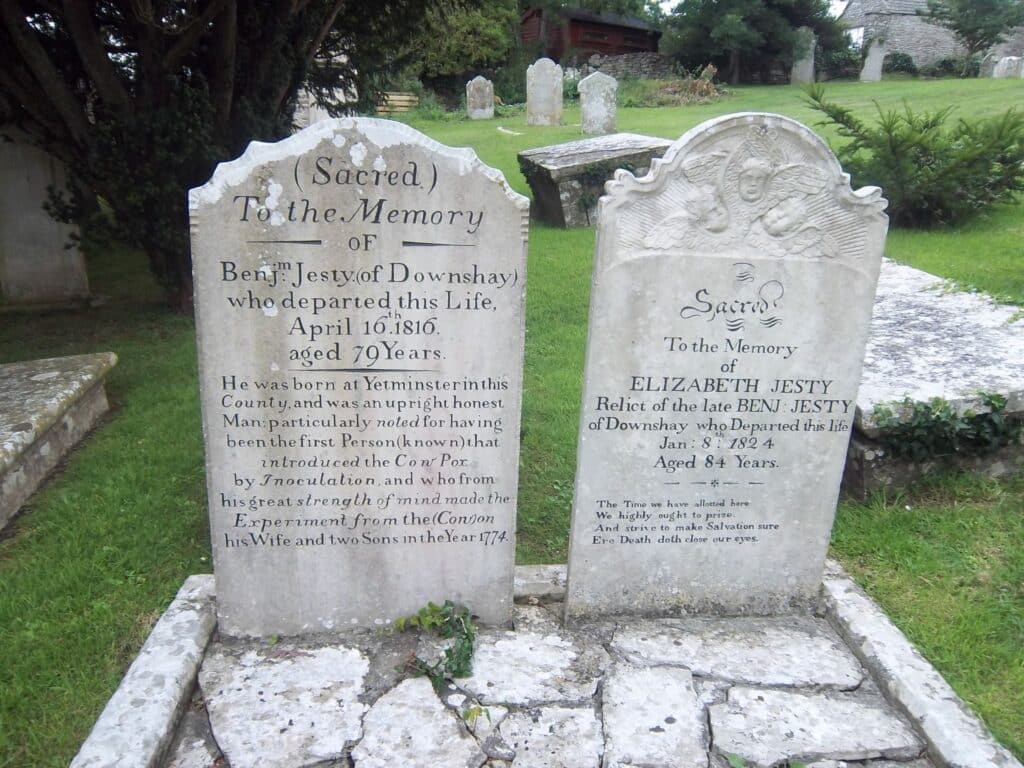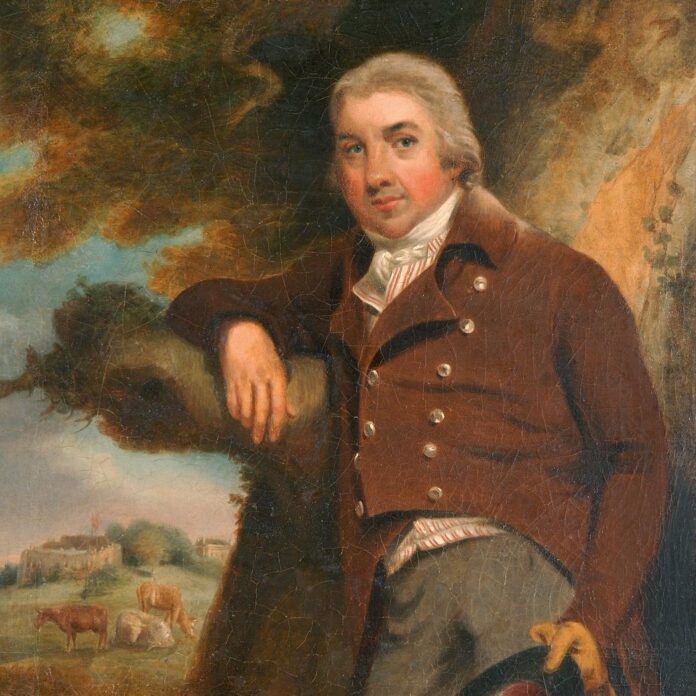The field of immunology has significantly advanced our understanding of the immune system and its role in protecting the body against diseases. Benjamin Jesty, an 18th-century English farmer and amateur scientist, stands as an unsung hero in the annals of immunological history. Long before the formal establishment of immunology as a scientific discipline, Jesty conducted groundbreaking experiments that laid the foundation for our modern understanding of vaccination.
Early Life and Background:
Born in Yetminster, Dorset, England, in 1736, Benjamin Jesty grew up in a rural setting with a keen interest in agriculture. Like many of his time, he lacked a formal education, yet he possessed an insatiable curiosity and an inventive mind. In the 18th century, England faced devastating outbreaks of smallpox, a highly contagious and deadly viral disease. Smallpox was responsible for considerable mortality and suffering, leading many people, including Jesty’s own family, to fall victim to the scourge of the disease.
The Dairy Maid’s Tale:
Jesty’s momentous contribution to the history of immunology began with an intriguing observation he made on his dairy farm. In the late 1770s, he noticed that milkmaids working on his farm seemed to develop mild cases of cowpox but never contracted smallpox. Cowpox, a related but less severe disease than smallpox, affected cattle and occasionally spread to humans through direct contact with infected animals. Inspired by this observation, Jesty formulated a hypothesis: exposure to cowpox could provide immunity against smallpox.
The First Vaccination Experiments:
Driven by his hypothesis, Jesty conducted his first vaccination experiment in 1774. Using a crude method, he extracted material from a cowpox sore on one of his milkmaids, Sarah Nelmes, and inoculated his wife and two young sons with the cowpox matter. This process, known as variolation, aimed to induce a controlled, milder form of cowpox infection in humans, thereby building immunity against smallpox. Remarkably, all three subjects demonstrated immunity to smallpox when later exposed to the disease.
Jesty’s pioneering experiments in vaccination predate those of Edward Jenner, who is commonly credited with the discovery of vaccination. While Jenner’s work is undoubtedly significant and well-documented, it is essential to recognise the groundbreaking contributions of Benjamin Jesty, whose experiments preceded Jenner’s by nearly two decades.
The Impact and Controversy:
Despite the success of his vaccination experiments, Benjamin Jesty’s work faced skepticism and disapproval from the scientific community of his time. As an uneducated farmer and amateur scientist, his findings were often dismissed or attributed to coincidence. Additionally, the prevailing medical establishment favoured established practices like variolation, which carried a higher risk of severe side effects than the cowpox-based vaccination.
Jesty’s lack of formal scientific training and access to resources hindered him from fully documenting and publishing his findings in reputable scientific journals. Consequently, the significance of his discoveries remained largely unknown during his lifetime and beyond.
Legacy and Recognition:
Tragically, Benjamin Jesty did not receive the recognition he deserved for his pioneering work in immunology. It was only years later that historians and scientists started to acknowledge the crucial role he played in shaping the history of vaccination. Some scholars argue that Jesty’s limited recognition stemmed from societal factors, including the prejudices against rural and less-educated individuals attempting to challenge the status quo of the scientific establishment.
In recent times, there has been a growing effort to honour and celebrate Benjamin Jesty’s legacy properly. Statues and memorials have been erected in his honour, and various organisations promote awareness of his contributions to immunology and vaccination.

Benjamin Jesty’s story is one of perseverance, ingenuity, and scientific curiosity. Despite facing numerous obstacles, he managed to revolutionise the field of immunology through his innovative vaccination experiments. Jesty’s discovery of cowpox-based vaccination provided the conceptual framework for the development of modern vaccines that have saved countless lives worldwide.
As we commemorate the pioneers of science, it is essential to remember figures like Benjamin Jesty, whose contributions may have been overlooked in their time but were critical to shaping the course of scientific progress. His story serves as a reminder that groundbreaking discoveries can come from unexpected sources and that the pursuit of knowledge knows no boundaries.
Today, as we face new challenges in the realm of immunology, we should draw inspiration from Jesty’s determination and open-mindedness. Acknowledging and celebrating the legacy of Benjamin Jesty can inspire future generations of scientists to question, explore, and challenge prevailing beliefs, leading to further advancements in the fascinating field of immunology.
Join us in helping to bring reality and decency back by SUBSCRIBING to our Youtube channel: https://www.youtube.com/channel/UCQ1Ll1ylCg8U19AhNl-NoTg and SUPPORTING US where you can: Award Winning Independent Citizen Media Needs Your Help. PLEASE SUPPORT US FOR JUST £2 A MONTH https://dorseteye.com/donate/







